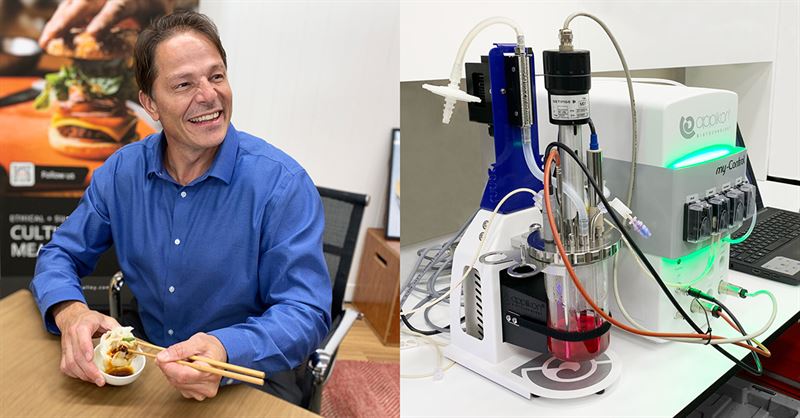Cultivated meat: Balancing ethics, sustainability, and flavor
While visiting Australia, Eric Honroth, President Life Science at Getinge, seized the chance to sample a cultivated pork dumpling produced by Magic Valley. Getinge’s bioreactor was part of the development process.

Magic Valley is an innovative Australian food company cultivating real meat products grown from a living animal, which Paul Bevan, CEO Magic Valley, views to be more sustainable and ethical than real animal meat products.
“We use less water, less land, produce less greenhouse gas emissions, and there's no animal slaughtering involved either, which is a really important driver as part of our mission.”
Farming is a vital segment of the economy for both Australia and New Zealand. Magic Valley frequently receive two main inquiries from farmers. Firstly, the potential impact of new technology on their businesses. Secondly, the feasibility of integrating this technology into their operations. The evolving conversations highlight their ongoing engagement with environmental concerns and the need to adapt to changing circumstances.
“The farmers are very much aware of the environmental impacts and how big an impact climate change is having on them. They've seen their industry change over many years already and that's going to continue with climate change.”
On his visit to Australia, Eric Honroth, President Life Science at Getinge, highlighted the medtech company’s strong commitment to sustainability, emphasizing the aspiration to lead and set an example of success through sustainable practices.
“Sustainability is one of our key strategic initiatives, we look at that as a mantra for how we can be successful and showcase to the life science community, as well as the medical device and medtech areas, that we are going to lead the way.”
Cultivated meat represents an intriguing avenue for lowering CO2 emissions. Getinge supported Magic Valley with a bioreactor used to help develop process and optimization of the initial stages, during the expansion of the stem cells.
“We feel that cultivated meat could be another opportunity in leading the way, because you look at the footprint required to have all of these large farms, and such needed to feed populations, that's big CO2 emissions as well as a large footprint regardless.”
Cultivated meat offers more than just environmental health benefits; it also enhances the well-being of consumers as Paul Bevan explains:
“The other advantage we have of the process is that it's done in a sterile environment, but we can also alter the nutritional profile as well. So, we can have less saturated fat. We could have more omega 3’s. We could fortify with vitamins and minerals as well.”
Continuous research and development endeavors are focused on enhancing not only the nutritional profile but also refining taste and texture.
“Taste, texture and mouth feel are the three things that we're working on from our food science perspective. In terms of the consumer, we know price is a really big driver, along with taste when it comes to food choices.”
On sampling a dumpling prepared using Magic Valley cultivated pork, Eric Honroth discovered it had the typical qualities of any pork dumpling.
“I tasted the pork dumpling, and it was excellent. Very flavorful and similar to what I've eaten a hundred other times.”